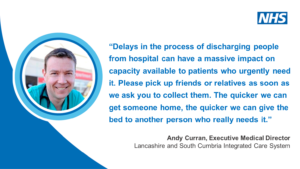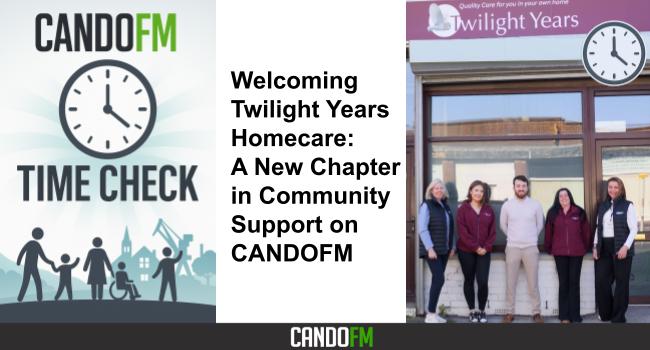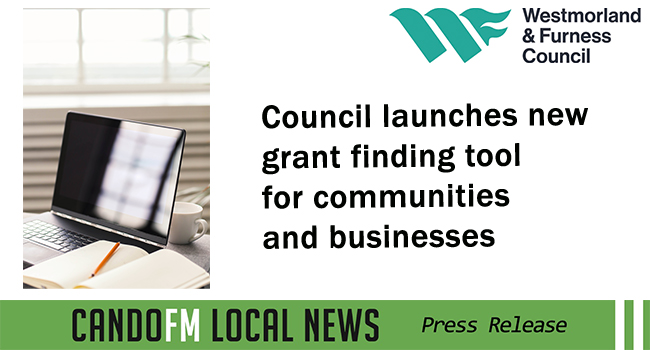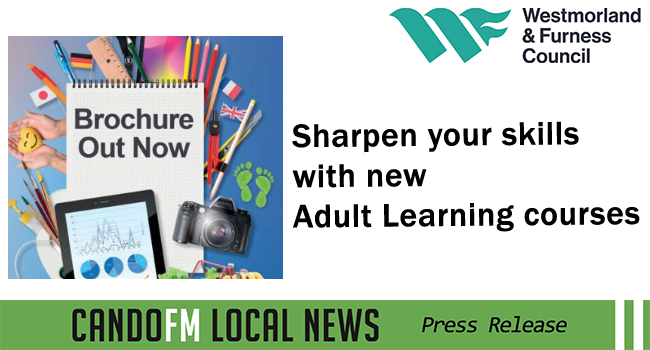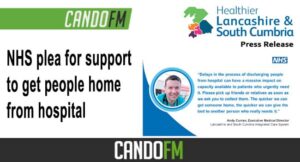
The NHS in Lancashire and South Cumbria is calling on families to help get their loved ones home from hospital quicker.
As hospitals and the wider NHS are experiencing a spike in COVID-19 Omicron cases and resulting hospital admissions, bosses are calling for families to help get people who no longer need hospital treatment back home.
At present, there are large numbers of patients in hospitals across Lancashire and South Cumbria who no longer need hospital treatment but have not yet been able to leave the hospital for a range of reasons.
With the pressures and demand on services that are being experienced, the NHS is keen to make sure these people get home as soon as possible for their own benefit and that of the wider hospital too.
Andy Curran, A&E clinician and Executive Medical Director for Lancashire and South Cumbria Health and Care Partnership, said: “We know that often, people stay longer in hospital than actually needed. It is best for everyone if as soon as people are medically fit to leave the hospital, they do so. People also recover better in their own home where they are familiar and more comfortable with their surroundings.
“Delays in the process of discharging people from hospital have a massive impact on the capacity available to provide care to those patients who urgently need it and mean we can’t run our hospitals as efficiently as we need to.”
In a direct plea to families across Lancashire and South Cumbria, Mr Curran said: “As we are now directly seeing the impact of the Omicron variant, we really need support from our community to help make sure that only those people who really need to be in hospital are.
“If we can get some of our relatives to come and pick up our patients thirty minutes, an hour, or four hours earlier – it potentially means we can get a patient off the back of an ambulance, thirty minutes to four hours earlier than we would do.
“So, please pick up friends or relatives as soon as we ask you to collect them. While not always able to help, when families are able to, we would ask them to do so as quickly as they can to help others.
“We know people are busy with work, childcare, or other commitments, and it may not be convenient to collect their loved one from hospital when we call, but the quicker we can get someone home, the quicker we can give the bed to another person who really needs it.”
People can also can help to reduce pressure on the NHS by continuing to use the most appropriate service and only calling 999 or visiting A&E in a genuine life-threatening emergency, such as a heart attack, suspected stroke or breathing difficulties.
If you need urgent advice you can use the NHS 111 online service or alternatively call 111 if you cannot get online.
NHS 111 can also help if you think you need to visit a minor injury unit to treat broken bones, burns and bites.
Other ways to help include:
- Using your pharmacist for minor conditions such as coughs, colds, ear aches and rashes
- Getting fully vaccinated against COVID-19 including taking up the offer to get your booster
- Staying away from hospitals if you have coronavirus symptoms, vomiting or diarrhoea
